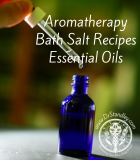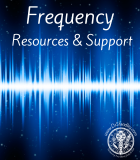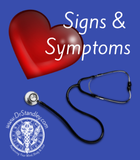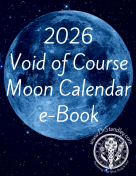Vitamin E should be provided in a high-quality multivitamin in the form of d-alpha tocopheryl. This is necessary because the natural form of Vitamin E is identical in structure to the Vitamin E that the body produces. It will be better absorbed than a synthetic Vitamin E and will remain in your system longer to give you more of its benefits. PLEASE READ NEW RESEARCH BELOW UNDER "POTENTIAL SIDE EFFECTS."
When taking Vitamin E, a proper amount of Zinc has to be maintained in order to assist Vitamin E to do it's job. Helps prevent free radical damage. May assist in preventing age spots due to the lipid interaction. Is essential for reproduction and increases the fertility of the males and females. It may also restore male potency. In the female it will aid in lactation and fibrocystic breasts. Aids in the prevention on miscarriages. Helps promote proper cellular health, mental health, blood flow and protects red blood cells. It is great for wound healing and helps to prevent blood clots. When it supplies more oxygen to the body, the body has more endurance. Helps support the lungs from day to day environmental pollutants. Improves circulation which can help with PMS. Can help prevent scarring, healing, reduces blood pressure and may help with cataracts. Athletic performance may be improved and also leg cramps.
NEW RESEARCH -- High Doses Increase Risk of Death From All Causes, Research Shows - By Peggy Peck - WebMD Medical News - Reviewed By Brunilda Nazario, MD - Wednesday, November 10, 2004
Nov. 10, 2004 (New Orleans)
Vitamin E hasn't proven to be good for the heart, and now a study suggests that too much vitamin E -- daily doses of 400 IU or more -- actually increases the risk of dying, according to new findings.
Johns Hopkins University researcher Edgar R. Miller III, MD, PhD, an associate professor of medicine, tells WebMD that when he combined 19 vitamin E studies that looked at almost 136,000 patients, "it was clear that as the vitamin E dose increased, so does all-cause mortality."
He says the risk of death starts to increase at 150 IU, but at 400 IU, which is the typical dose available in vitamin E capsules, the risk of dying from any cause is about 10% higher than for people not taking the vitamin. At megadoses, such as 2,000 IU of vitamin E, the risk increased more than 20%.
"Based on our findings, high-dose vitamin E supplementation is unjustified," he says. Vitamins, he notes, are not regulated by the FDA or other agencies, but a report in 2000 by the Institute of Medicine recommended 1,000 IU per day as the "upper tolerable limit" for vitamin E. "We recommend that the upper tolerable limit be lowered to 400 IU per day," he says. Adults get about 10 IU of vitamin E from diet, he says.
Miller presented his findings at the American Heart Association's Scientific Sessions 2004, and the study was simultaneously released online by the Annals of Internal Medicine.
'Don't Take' Vitamin E Supplements
"This is the most important story from this meeting," Raymond Gibbons, MD, a professor of medicine at the Mayo Clinic in Rochester, Minn., tells WebMD. Gibbons, who served as chairman of the scientific program committee at the meeting, says he has been urging his patients to stop taking vitamin E for years.
He also says heart disease prevention guidelines say "vitamin E is 'not recommended.' It doesn't get clearer than that -- don't take it."
Studies of vitamin E supplements in people with heart disease have not shown that vitamin E is effective in preventing heart attacks or deaths.
His voice rising as he describes his frustration with patients that "don't take drugs that we know work, yet take a supplement because they heard about it on the radio or because a neighbor recommended it," Gibbons says he hopes this latest report will finally debunk the vitamin E myth.
An iron supplement should not be taken together with Vitamin E. If you are suffering from diabetes, thyroid disorders, rheumatic heart disease or other heart ailments you SHOULD consult your physician before taking ANY Vitamin E. If you are suffering from high blood pressure should consult their physican first, also.
Remember, Zinc is essential to maintain proper Vitamin E levels.
Alfalfa sprouts, almond, avocado, barley, been sprouts, bee pollen, broccoli, carrot, corn, cornmeal, eggs, fruit, grains, leafy greens, kelp, legumes, dessicated liver, nuts, milk, oatmeal, organ meats, olive oil, oranges, brown rice, rosehips, seeds, spinach, spirulina, all kinds of sprouts, sweet potatoes, Vegetable and nut oils, sunflower seeds, whole grains, wheat germ, and wheatgrass.


































 VITAMIN E - (d-alpha tocopheryl)
VITAMIN E - (d-alpha tocopheryl)